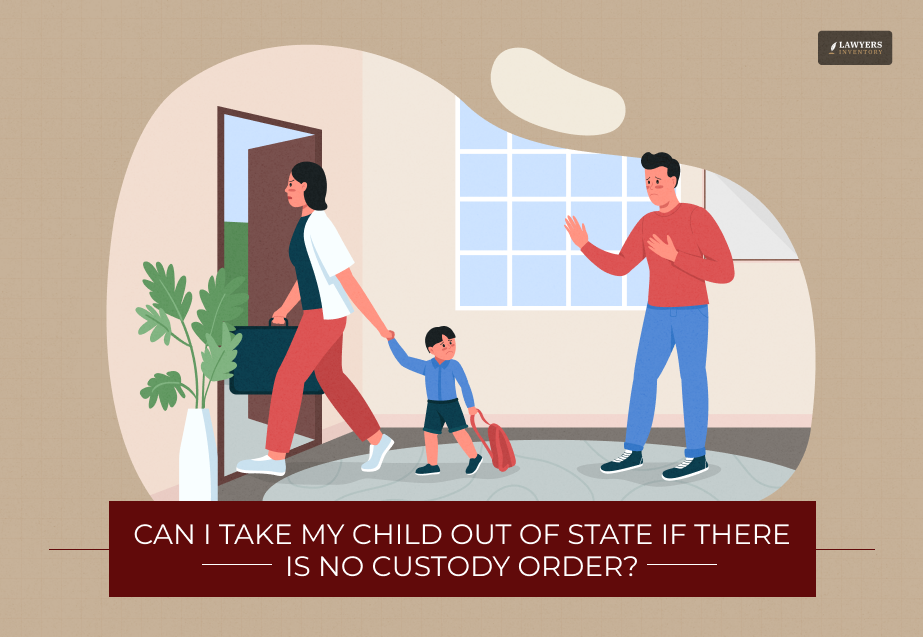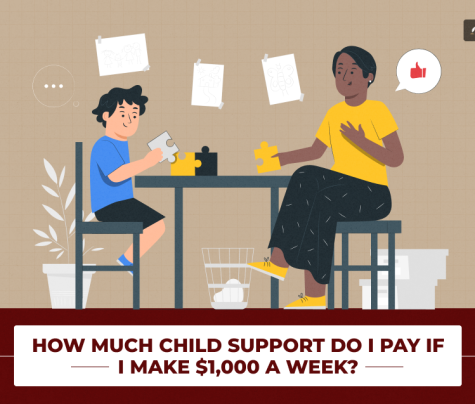
- A custody order is a legal court order that outlines the rights and responsibilities of guardians and/or parents when it comes to child custody.
- Such a legally binding document generally mentions who the child is supposed to live with and who has the authority to make important decisions about the child’s life, including education and health.
- Apart from mentioning the rights, this order also mentions the restrictions. For instance, irrespective of whether there is a custody order or not, one cannot take the child out of the state unless the other parent has approved of such a move.
Child custody is a major part of any divorce. This legally binding document outlines what a parent can and cannot do for or with their child. And it is very important that both parents follow this custody order to ensure the best interests of the child.
However, there can be times when there is no custody order in place. And without one, your rights as a parent might not be legally enforceable. This can eventually make it difficult for you to live and move freely with your child.
Which is why having a clear understanding of what some of the things are that you can and cannot do in the absence of a custody order is very important.
In this article, I will explain:
- What does the absence of a custody order mean?
- Can you take your child out of state in the absence of a custody order?
- What are the legal risks of moving without a custody order?
So, if these are some of the things that you want to know, keep on reading this article till the end…
Can I Take My Child Out Of State If There Is No Custody Order?

Even without a formal custody order, neither parent necessarily holds unilateral authority to take a child across state lines.
While it is true that the lack of custody documentation might suggest flexibility, doing so without the other parent’s consent or legal approval can trigger serious legal consequences.
This can include criminal charges such as parental kidnapping or interstate custodial interference. Which is why the safest path is to secure an agreement or court order before you decide on relocating with your child.
Understanding Custody In The Absence Of A Court Order
When there is no custody order in the United States, child custody often depends on the marital status of the parents. However, you need to keep in mind that in such a case, every arrangement that takes place is temporary. Additionally, no one can enforce them legally.
In other words, without the official, legally binding child custody order, either parent has the freedom and right to take the child wherever they want. Eventually, this is something that can potentially cause several legal complications and impact the well-being of the child.
If the parents are married, they generally share the rights and responsibilities equally by default. As a result of this, as Custody X Change states, moving out of state permanently without consent may be legally questionable in many jurisdictions.
Unmarried mothers, most often, automatically have sole physical custody unless a court intervenes. According to several legal experts, this may allow relocation. However, paternity and custody actions from the father can impact this ability.
On the other hand, unmarried fathers generally have no custody rights over a child. They lack authority unless they are able to establish paternity legally. A custody attorney for men is generally someone who can help in such cases.
What Are The Types Of Moves?
When we speak of moving out of state and whether it is legally permissible, you need to understand the intent behind such a move. In other words, the type of moves plays a major role in whether a parent will face legal implications.
Primarily, there are two different types of movement when it comes to taking a child out of state in the absence of a custody order. These are:
- Temporary travel.
- Permanent relocations.
Temporary travel, such as vacations or short trips, is generally legally permitted even without formal custody orders. However, experts on Avvo suggest that it’s wise to inform the other parent of the plans to avoid conflict or allegations of concealment.
On the other hand, permanent relocations are much more restricted. Courts (particularly in states like California) may treat unilateral moves as disruptive, harmful to the child’s best interests, and may require written consent or court approval.
What Are The Legal Risks Of Moving Out Of State Without Custody Orders?
Moving out of state without a legally binding custody order from the court, whether for permanent relocation or vacations, can have several legal consequences. Some of them that you must know about are as follows:
- Parental kidnapping/custodial interference: Even without an order, state laws vary, and in many, taking a child across state lines without notifying the other parent could meet the threshold for wrongdoing.
- Emergency court orders: According to Willig, Williams & Davidson, the non-moving parent can seek an immediate “pick-up” or return order, compelling law enforcement to act.
- Future custody disputes: Unilateral relocations may influence a court’s perception of your parenting. In such a case, courts may view such moves as vindictive or disruptive, harming your case long-term.
Did You Know?
UCCJEA (Uniform Child Custody Jurisdiction and Enforcement Act) is a federal model law that decides which state has proper jurisdiction.
The “home state,” where the child lived for six months before any court action, typically retains authority, and emergency enforcement can expedite return orders across states.
Frequently Asked Questions (FAQs):
Searching for the answer to “Can I take my child out of state if there is no custody order?” Here are some if the questions that people often ask related to this topic:
1. What If The Other Parent Refuses To Let Me Move?
You’d need to file a legal petition requesting relocation and demonstrate to the court that the move benefits the child.
2. Could I Lose Custody For Moving Without Telling The Other Parent?
While not automatic, courts may view undisclosed moves as harmful to the child’s stability — it can damage your credibility in custody proceedings.
3. Does The Law Differ For Unmarried Parents?
Yes — for instance, unmarried mothers often have custodial authority until the father establishes paternity.
4. What Can I Do If The Other Parent Took Our Child Out Of State Without Telling Me?
You may be able to file an emergency return petition in your home state and invoke UCCJEA protections.
Read Also:
- Why More Parents Are Choosing Collaborative Divorce Over Court Battles
- Understanding Family Law: Divorce, Custody, and Support for Women
- How to Get Full Custody of a Child as a Mother?











0 Reply
No comments yet.